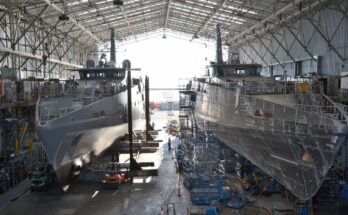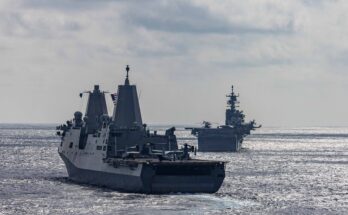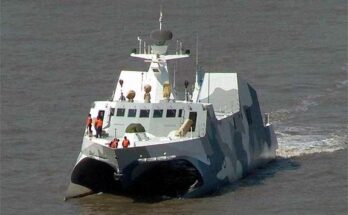During a visit to Amur Shipyard, Russian Deputy Defense Minister Yuri Borisov detailed when the Navy expects to receive four Project 20380 corvettes.
Deputy Defense Minister Borisov, at Amur Shipyard, criticized the delays facing the delivery of Project 20380 corvettes. The first Project 20380 corvette laid down at Amur Shipyard, Sovershenny, began construction over a decade ago; it was only launched in 2015 and began state trials earlier this year.
Two Russian shipyards — Severnaya Verf and Amur Shipyard — are constructing the 2,000 ton corvettes. The corvettes are armed with 3M24 Uran and 3M54 Klub anti-shipping missiles and eventually most will be equipped with the Redut air-defense system, a naval variant of the Vityaz.
The Russian Navy currently has four Project 20380 corvettes in service. These four, all built by Severnaya Verf, are all in service with the Baltic Fleet and were commissioned between 2007 and 2014.
Including Sovershenny, Amur Shipyards has worked on four vessels in the class. The rest of the ships, all under construction, are Gromkiy, Aldar Tsydenzhapov, and Rezkiy. These were laid down in 2012, 2015, and 2016, respectively.
In addition to his criticism, Deputy Defense Minister Borisov added that he expects the Navy will receive one corvette from Amur Shipyard each year through 2020, beginning with a ship this year. He indicated that these ships would be delivered in the order they were laid down.
If the expectations are met, that means Sovershenny will complete its state trials this year and enter service before the end of 2017. It first began trials in January. The next vessel, Gromkiy, will be delivered in 2018. After that, the Navy will receive Aldar Tsydenzshapov and Rezkiy in 2019 and 2020, respectively. These vessels will join the Pacific Fleet.
Military markets analyst, covering Eurasia, Middle East, and Africa.




